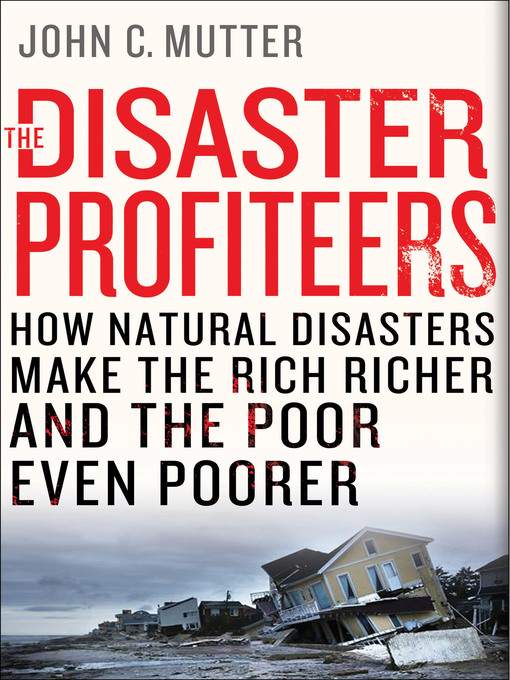Natural disasters don't matter for the reasons we think they do. They generally don't kill a huge number of people. Most years more people kill themselves than are killed by Nature's tantrums. And using standard measures like Gross Domestic Product (GDP) it is difficult to show that disasters significantly interrupt the economy.
It's what happens after the disasters that really matters-when the media has lost interest and the last volunteer has handed out a final blanket, and people are left to repair their lives. What happens is a stark expression of how unjustly unequal our world has become. The elite make out well-whether they belong to an open market capitalist democracy or a closed authoritarian socialist state. In Myanmar-a country ruled by a xenophobic military junta-the generals and their cronies declared areas where rice farms were destroyed by Cyclone Nargis as blighted and simply took the land. In New Orleans the city was re-shaped and gentrified post Katrina, making it almost impossible for many of its poorest, mostly black citizens to return.
In The Disaster Profiteers, John Mutter argues that when no one is looking, disasters become a means by which the elite prosper at the expense of the poor. As the specter of increasingly frequent and destructive natural disasters looms in our future, this book will ignite an essential conversation about what we can do now to create a safer, more just world for us all.
- Available now
- New eBook additions
- New kids additions
- New teen additions
- Most popular
- Try something different
- See all ebooks collections
- Available now
- New audiobook additions
- New kids additions
- New teen additions
- Most popular
- Try something different
- See all audiobooks collections


